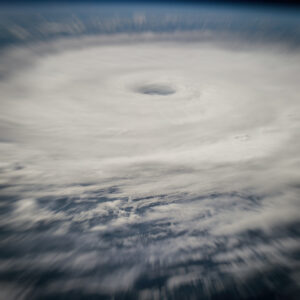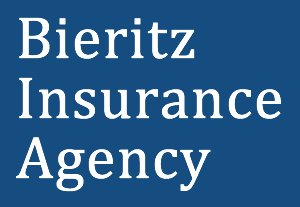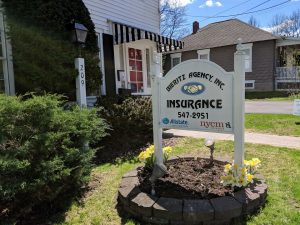Hurricane Preparedness for Homeowners
Protecting Your Home and Family
 Hurricanes are powerful and unpredictable natural disasters that can wreak havoc on homes and communities, even in our region in upstate NY. As a homeowner, being prepared for hurricane season is essential to safeguard your property and loved ones. In this article, we’ll share some helpful tips on preparing your home for hurricane season and explain why having the right insurance coverage is crucial during these catastrophic events.
Hurricanes are powerful and unpredictable natural disasters that can wreak havoc on homes and communities, even in our region in upstate NY. As a homeowner, being prepared for hurricane season is essential to safeguard your property and loved ones. In this article, we’ll share some helpful tips on preparing your home for hurricane season and explain why having the right insurance coverage is crucial during these catastrophic events.
1. Create a Hurricane Preparedness Plan
Before hurricane season begins, it’s crucial to create a comprehensive hurricane preparedness plan for your home and family. Here’s what to include in your plan:
- Emergency Contacts: Compile a list of important phone numbers, including local emergency services, utility companies, and family members’ contact information. Make sure everyone in your household has a copy.
- Evacuation Plan: Determine the nearest hurricane evacuation routes and shelters. Have a plan in place for where your family will go if you need to evacuate.
- Emergency Supplies: Assemble an emergency kit that includes non-perishable food, water, flashlights, batteries, a first-aid kit, and essential medications. Ensure you have enough supplies to last at least three days.
- Communication Plan: Establish a communication plan with family members, including a designated meeting place if you become separated during a hurricane.
2. Secure Your Home
Preparing your home is vital for minimizing damage during a hurricane. Here’s how to secure your property:
- Trim Trees and Shrubs: Prune trees and shrubs to remove dead branches and reduce the risk of falling debris during a storm.
- Secure Outdoor Items: Secure or store outdoor furniture, grills, and other loose items that could become projectiles in high winds.
- Check Roof and Gutters: Inspect your roof for loose or damaged shingles, and clean gutters to ensure proper drainage.
- Install Storm Shutters: If you live in a hurricane-prone area, consider installing storm shutters to protect windows from flying debris.
- Reinforce Garage Doors: Reinforce your garage doors to prevent them from collapsing during high winds.
- Elevate Valuables: Raise valuable items and important documents off the ground in case of flooding.
- Install Sump Pumps: If your area is prone to flooding, install a sump pump to help prevent water damage in your basement.
3. Review Your Insurance Coverage
Having the right insurance coverage is paramount during hurricane season. Here’s what you need to know about insurance:
- Homeowners Insurance: Review your homeowners insurance policy to understand what it covers. Typically, it covers damage caused by wind, rain, and falling debris. However, it may not cover flood damage.
- Flood Insurance: If you live in a flood-prone area, consider purchasing flood insurance through the National Flood Insurance Program (NFIP) or a private insurer. Standard homeowners insurance policies do not cover flood damage.
- Windstorm Insurance: In some hurricane-prone regions, you may need a separate windstorm insurance policy to cover hurricane-related wind damage. Check with your insurance company to see if this coverage is necessary for your area.
- Coverage Limits: Ensure your insurance policy has adequate coverage limits to rebuild your home and replace personal belongings in the event of a hurricane. Consider increasing your coverage if needed.
- Document Your Property: Create a detailed inventory of your belongings and document your home’s condition before a hurricane. This documentation can be invaluable when filing an insurance claim.
4. Stay Informed and Evacuate if Necessary
During hurricane season, it’s essential to stay informed about storm developments. Use the following resources to stay updated:
- Weather Alerts: Sign up for weather alerts and notifications from the National Weather Service (NWS) and the Federal Emergency Management Agency (FEMA).
- Local News: Monitor local news channels and radio stations for updates on hurricane paths and evacuation orders.
- Emergency Apps: Download emergency apps, such as the FEMA app and weather apps, to receive real-time information and alerts.
- NOAA Weather Radio: Purchase a NOAA weather radio to receive continuous weather updates and emergency information.
If authorities issue an evacuation order for your area, follow it promptly. Your safety and the safety of your family should always be your top priority.
5. Post-Hurricane Recovery
After a hurricane, the recovery process can be challenging. Here are some steps to take once the storm has passed:
- Assess Damage: Assess the damage to your home and property. Document any damage with photographs and contact your insurance company to begin the claims process.
- Safety First: Be cautious of hazards, such as downed power lines and standing water. Avoid using candles for lighting, as they can pose a fire risk.
- Temporary Repairs: Make temporary repairs to prevent further damage to your home. Cover damaged roofs and windows, and address any immediate safety concerns.
- Flood Cleanup: If your home has flooded, it’s essential to remove water and dry out the affected areas as soon as possible to prevent mold growth and further damage.
- Insurance Claims: Work closely with your insurance company to file a claim and document all communication and expenses related to the hurricane’s impact.
Hurricane preparedness is a critical responsibility for homeowners, especially in hurricane-prone areas. By creating a comprehensive preparedness plan, securing your home, reviewing your insurance coverage, and staying informed, you can better protect your property and loved ones during hurricane season.
Remember that insurance coverage is a crucial component of hurricane preparedness. Review your policies, understand your coverage limits, and consider purchasing flood or windstorm insurance if necessary. Being proactive and well-prepared can make a significant difference in how you weather the storm and recover afterward, ensuring that you are well-protected. If you have questions about your insurance coverage or would like a free quote, contact our team at 607-547-2951.

